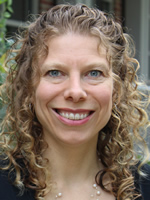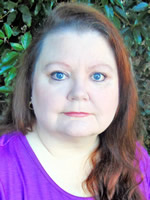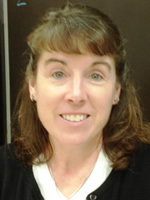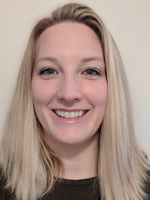Robert E. Yager Exemplary Teaching Award—2019 winners
By NSTA Web Director
Posted on 2019-06-04
The Robert E. Yager Exemplary Teaching Award recognizes six full-time K–12 teachers of science who successfully use innovation and excellence in their classroom.
District III

Katherine Owens
STEM Teacher
Washington Episcopal School
Bethesda, Maryland
After almost a decade in the consumer product industry as the Vice President of Business Development, Katherine Owens felt a calling to give back to others and to become a teacher. She wanted to join the growing movement of educators interested in exploring and developing new approaches and weaving innovation into the classroom. At her first teaching position Owens developed and taught an in-school pilot STEM program. The class was a great success, and she has been teaching the expanded program to grades 1–5 ever since. This program takes an interdisciplinary approach to exploring STEM concepts, their application, and STEM’s relation to invention; invention STEM challenges; and the role of STEM in business and global, social and environmental responsibility. Owens firmly believes that collaboration, creativity, and innovative thinking in STEM education will greatly benefit students for their future success. It is her mission as a STEM educator to promote excellence and innovation in science teaching to as many people as she can touch through her passion and wonderment of science. Nate Dennison, Elementary Grades Director at Washington Episcopal School, says, “It is once in a lifetime to have the privilege of working with and learning alongside a modern day renaissance woman such as Katherine Owens. … Katherine is someone who sees the big picture of schooling and understands the relationship of thinking and learning, questioning and innovating.”
View Katherine Owens’s PowerPoint presentation
District V

Virginia Hall
Science Teacher
Mary G. Montgomery High School
Mobile, Alabama
Virginia Hall immerses her classes in inquiry-based learning (IBL), which encompasses a variety of teaching and learning approaches. She passionately believes that science belongs to all students and actively demonstrates that students with a wide range of diversity and a host of abilities can learn science. Hall takes complicated science topics and designs lessons that enables all learners to gain an understanding of the topic. Furthermore, she encourages students to engage in argument based on evidence, as well as construct explanations and design solutions. Preparing students to use these as well as other vital skills outside the classroom is especially important to her. Students are only in the traditional classroom a short period, so she wants to develop a lifelong learner. Hall is also a NASA teacher leader who has developed lessons to incorporate NASA into the average classroom. She has presented at several conferences in the last year. Stephanie C. LeGrone K–12 Science Supervisor Mobile County Public Schools, says, “I have had the honor to see Mrs. Hall grow and really become my go-to teacher for all things Earth science. She has a passion for science that is unparalleled and has dedicated herself to bettering herself and her craft. … She embodies science and STEM in everything she does and often works tirelessly to ensure her lessons have literacy, numeracy, and data analysis components while still digging deep into the standards.”
View Virginia Hall’s PowerPoint presentation
District IX

Cathy Oates-Bockenstedt
Science Teacher
Eden Prairie’s Central Middle School
Eden Prairie, Minnesota
Cathy Oates-Bockenstedt is fortunate to have had outstanding opportunities for contributions. For 30 years, she has continued the lessons she learned from Dr. Bob Yager back in 1988, when he encouraged the combination of science with technology and society. Students are the main beneficiaries of this dedication. She became an author of two books designed to help preservice teachers get off to a good start in Earth science teaching. Oates-Bockenstedt spent 10 years volunteering on a Foundation Board of Directors, helping to support and enhance excellence in classrooms, through generous grants and student scholarships, throughout her school district. She achieved National Board for Professional Teaching Standards Certification for Early Adolescent Science in 2004. This certified that she was heading toward excellence in what she knows and is able to do as a teacher. Through it all she has a foolproof system to help keep her motivations high in this amazing career that can be quite challenging. Timothy M. Cooney, University of Northern Iowa Professor Emeritus Earth Science and Science Education, shares, “I have known Cathy for about 37 years. … I strongly believe that you would struggle to find a science teacher more deserving and more qualified than Cathy. [She has] outstanding abilities to motivate and challenge students and in addition, her abilities to motivate and challenge her fellow teachers.”
View Cathy Oates-Bockenstedt’s PowerPoint presentation
District XI

Jennifer Jones
Science Teacher
Ogallala High School
Ogallala, Nebraska
Jennifer Jones’s main philosophy on science teaching is that “science is a verb.” Her students often joke that they “science” through things because they are doing, not just absorbing information. Phenomena-based learning, hands-on learning, application of ideas to the real world, three-dimensional learning, and building science confidence are all important in her teaching process. Jones has adopted phenomena-based storylines as an important anchor in her lesson design, starting each unit with a specific case or instance that students can all observe and experience. She follows the “ABC” rule in her classroom, “activity before content.” Over the past decade, she has made significant contributions to her students, community, and state in the science education field. Jones was an active advocate for science education early in her career and has created a culture of collaboration and sharing among educators. One of her main passions is to ensure that rural students have the same opportunities as those in urban areas. Raelyn DeVries, former student and mentee of Jennifer Jones, says, “She has the ability to understand and meet the needs and learning abilities of those in her classroom while not inhibiting the education of others. She makes it very difficult to have the mentality of ‘Memorize-Regurgitate-Forget’ and instead facilitates learning of overarching concepts and drawing connections between ideas.”
Disclaimer: The views expressed in this blog post are those of the author(s) and do not necessarily reflect the official position of the National Science Teaching Association (NSTA).


